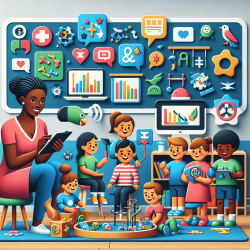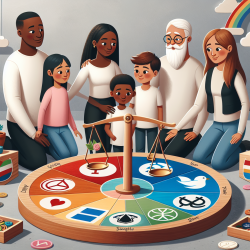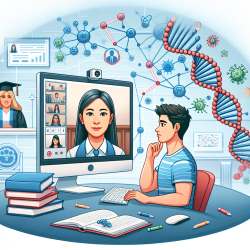In the dynamic world of special education, therapists continuously seek innovative methods to support their students. One such method, drawn from the research article "Speaking Out on Sexualized Violence Through Artistic Storytelling in Post-conflict Northern Ireland," highlights the transformative power of artistic storytelling. This approach can be adapted to enhance online therapy practices, fostering a more empathetic and supportive environment for students with special needs.
The Power of Artistic Storytelling
Artistic storytelling, particularly through testimonial theater, has shown significant potential in addressing deeply rooted issues such as sexualized violence. This method involves participants sharing their personal stories on stage, creating a safe space for expression and healing. The research conducted in Northern Ireland demonstrated how this form of storytelling helped survivors of sexualized violence break their silence, redefine their sense of self, and foster interpersonal and societal transformation.
Applying Artistic Storytelling in Online Therapy
For practitioners in special education, incorporating artistic storytelling into online therapy sessions can provide numerous benefits:
- Creating Safe Spaces: Just as testimonial theater provides a nonjudgmental environment for participants, online therapy can be structured to ensure students feel safe and supported while sharing their stories.
- Empowering Students: Encouraging students to share their experiences through creative mediums like storytelling can help them develop a stronger sense of agency and self-worth.
- Fostering Empathy: Sharing personal narratives can enhance empathy among peers, promoting a more inclusive and understanding classroom environment.
- Breaking the Silence: Artistic storytelling can help students articulate difficult experiences, breaking the silence and stigma surrounding various issues they may face.
Encouraging Further Research
The research on artistic storytelling in Northern Ireland provides a compelling case for its broader application in therapeutic settings. Practitioners are encouraged to explore further research and consider how these methods can be tailored to support their unique student populations. By staying informed and open to innovative approaches, therapists can continue to improve the effectiveness of their practice.
Conclusion
Artistic storytelling offers a powerful tool for online therapy in special education, helping students express themselves, heal, and connect with others. By integrating these methods, practitioners can create more supportive and transformative therapeutic environments.To read the original research paper, please follow this link:
Speaking Out on Sexualized Violence Through Artistic Storytelling in Post-conflict Northern Ireland.










